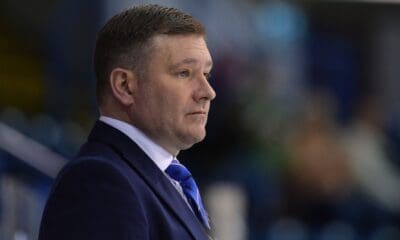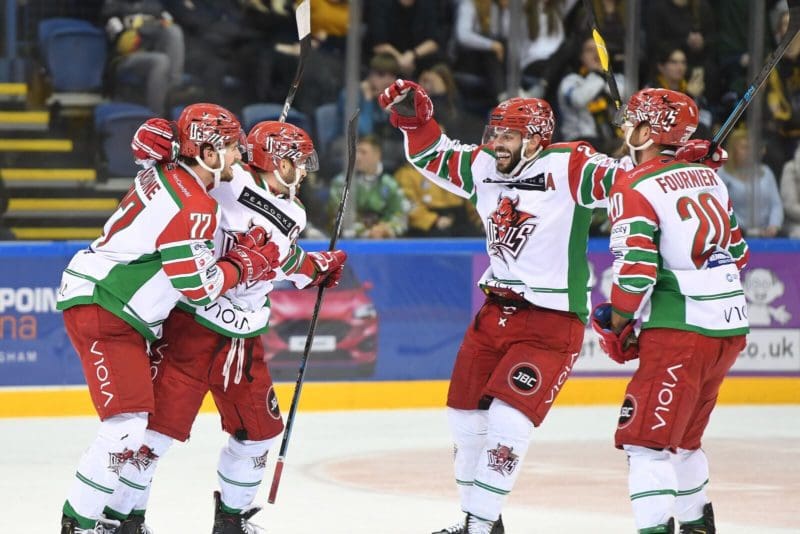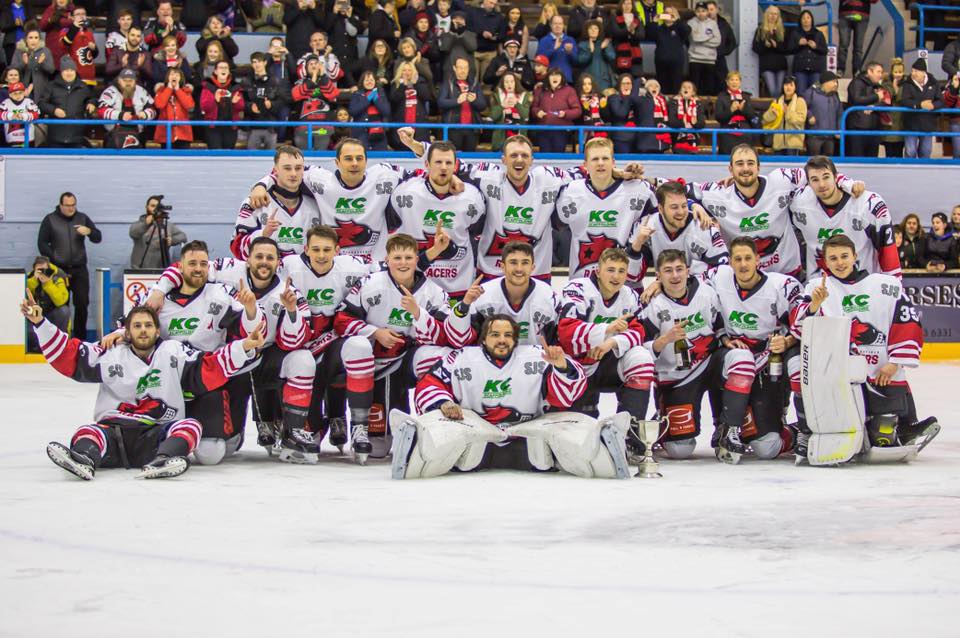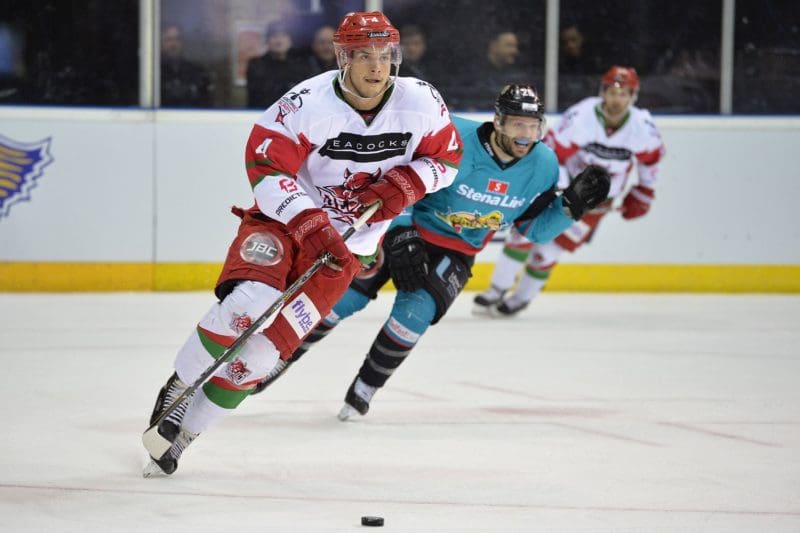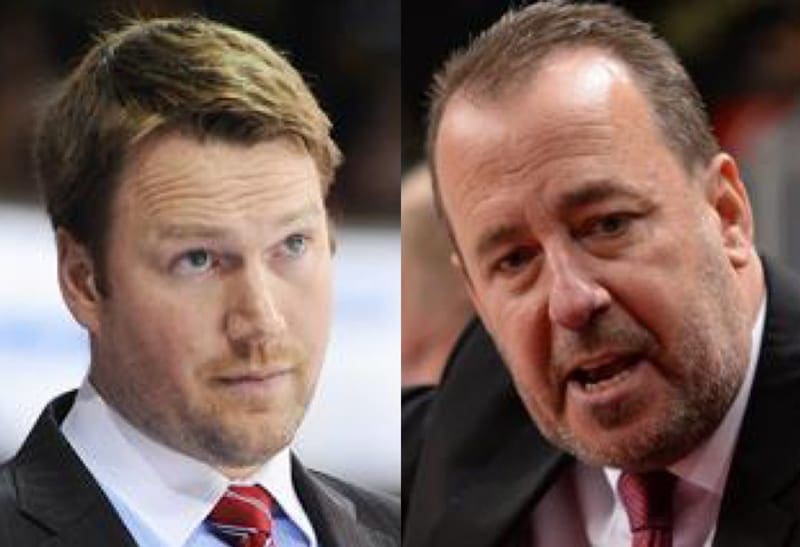
With just days until the puck drops on Great Britain’s World Championship campaign, there’s one job in particular that is demanding and highly pressured in helping a country deliver a goal in a short space of time…the coach.
Pete Russell has had a few years in the GB post now, with great success along the way, but what is it really like to be on the bench or in the office when the big decisions are made? How does the head coach break up his day and prepare a team in such a short space of time?
Two of Russell’s predecessors are ideally placed to give an insight into the post in the days leading up to a World Championship campaign and know exactly how the Scot will be feeling as that first game looms closer.
Paul Thompson, now at DEL side Schwenninger Wild Wings and Manchester Monarchs coach Doug Christiansen, an Elite League winner with Belfast Giants, did the job with differing degrees of success as they combined full time club coaching with an eye on the national team post as they looked to take GB into the realms they are now exploring.
Thompson was an assistant coach in 2001 and 2002 before taking the main job on in 2006, where he stayed for four years and almost led the country into the top pool before leaving in 2011.
Christiansen was also an assistant coach under Tony Hand for two years before taking it on himself in 2013 for a year until moving on after the 2014 campaign, from where Russell took the reins.
But if anyone thinks it’s a job you can only concentrate on when the play-off finals are finished with, think again as Paul and Doug explained.
“I was a club coach at Coventry, so I was able to see how the other players I picked were getting with their clubs by playing against them every week,” Thompson said. “With the staff I had, who were coaching other clubs, they were feeding back too so we had eyes everywhere.
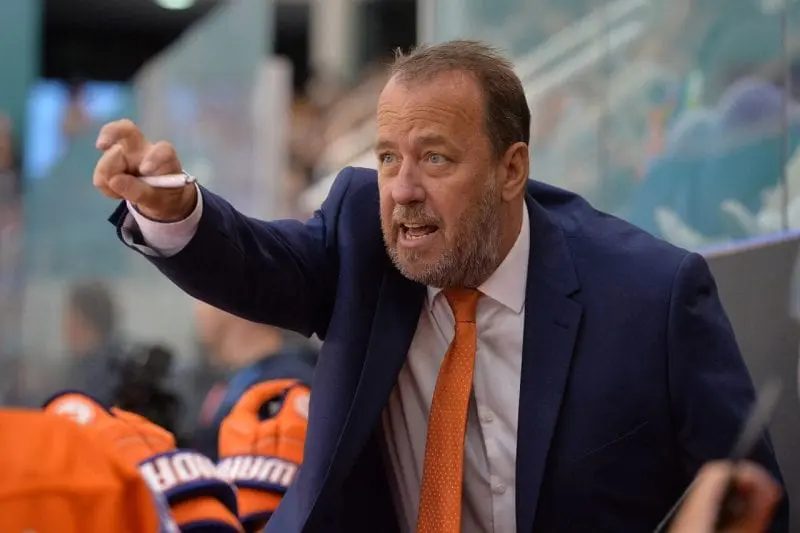
Paul Thompson was GB coach for five years and almost reached the top flight in his time in charge (PHOTO: Dean Woolley)
“The scouting was pretty easy to do for that reason and we had a couple of EPL guys as well, but we picked the team on form and fitted the style.
Doug added: “I had a good staff that knew more than me because they’ve gone on to do a really good job. We got together with Pete Russell and Corey Neilson and we discussed concepts, how we wanted to play, the kind of players we wanted, the teams in our group and we made long lists.
“We listed the characteristics against the names of each individual. We had to decide how important someone is on the penalty kill as opposed to a guy on the powerplay and weighing up that.
“You probably think GB would have more penalty kills than powerplay because they perhaps aren’t as fast as some of the other players so having more killers seemed to be more important. But as the season went on, the lists got more refined until you get it down to who you want to bring to training camp.”
Of course, it goes without saying when it comes to deciding on the final squad to take you to a championships, you’ll delight the majority when you confirm they’re going to be on the plane. But there is the few that need to be let down, that it’s the end of the road for them.
When you consider they’ve worked hard all year, perhaps working towards a place to represent their country, it’s an awful job and both Thompson and Christiansen disliked that particular element of the role.
Paul said: “When it comes to cutting players, make no bones about it, it’s the toughest thing to have to do. When we went to Ukraine, we were undecided over a couple of players that were right on the bubble of who we were going to take.
“You have to put in the right players you think will succeed at that level and you find any decision you make is always going to be scrutinised.
“Everybody is always going to suggest someone you’ve missed out. That’s people’s opinions and I’m sure Pete has used Adam and Corey to help him decide on his 25.
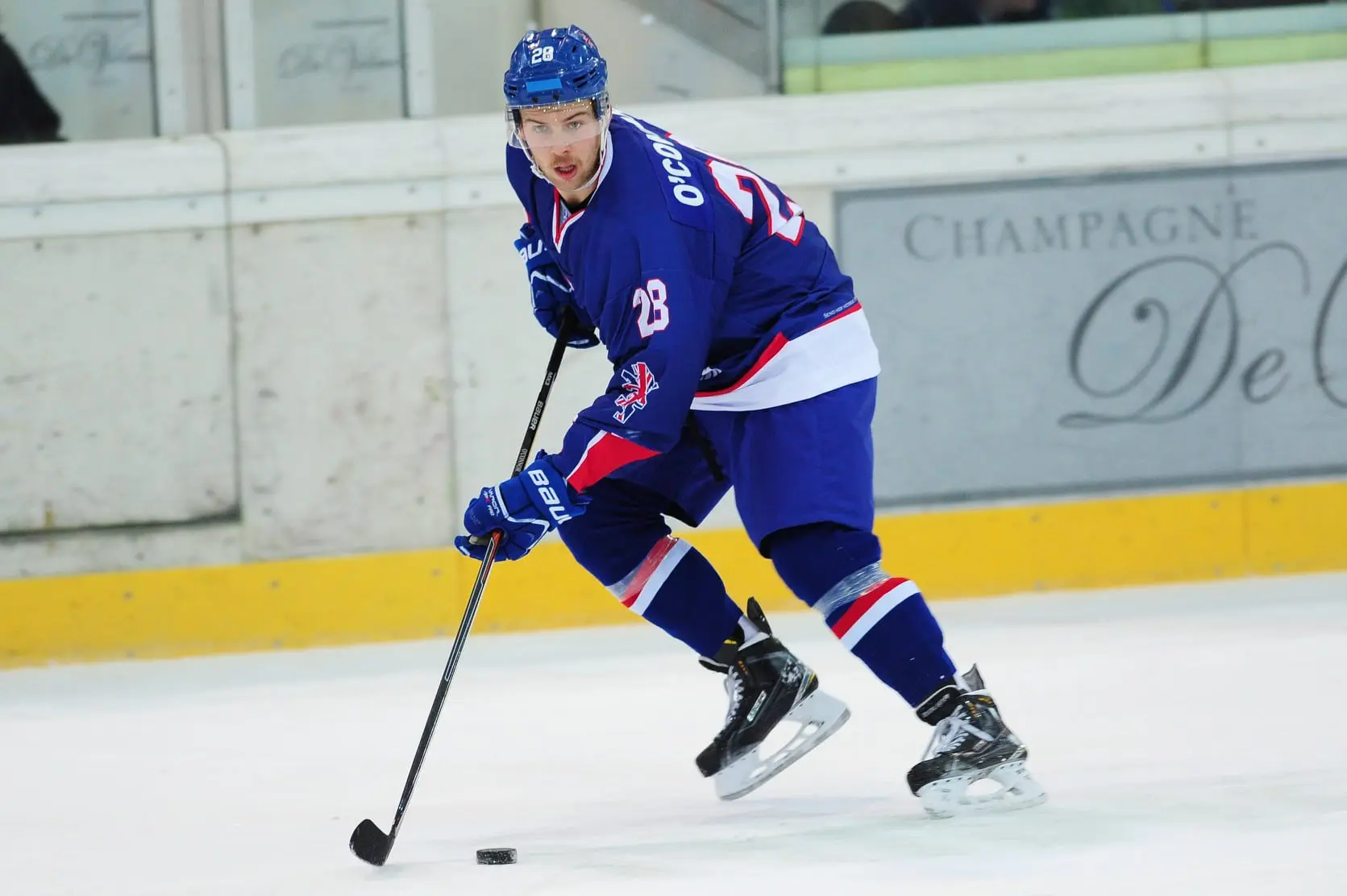
Ben O’Connor scored the winner in Paul Thompson’s last game in charge of GB in 2011, a 3-2 win over Poland (PHOTO: Dean Woolley)
“We had a ten-week camp with 26 guys and had to cut three or four and we told them from the off what we were going to do and how we were going to decide it. That way everybody knew and they wouldn’t be walking on egg shells.
For Doug, he consoles himself with the fact that as long as you can fully justify the decision to scratch a particular player.
“Telling those who aren’t going is not a lot of fun and you just have to honest with them,” the former Belfast and Sheffield coach said. “You have to make sure you give them a fair evaluation and be able to account for the decision you’ve made in bringing someone in instead of them.
“To me, it was always important to look them in the eye, shake their hand and wish them all the best so they can make it in the future. Leading to the decision to cut the few from the final team is so hard to do from a country that is very proud to be wearing the jersey.”
On the face of it, working as a club coach means you have all year round to work with the players, make the necessary preparations for your next games and can work and tweak your lines and systems throughout the year to help the team succeed.
Working on the international stage is very different in that regard, bringing in players you don’t work with on a day to day basis from other clubs and getting them to buy into your ideas.
However it something Thompson never had an issue with during his tenure and reckons the training programme now for Russell is far better now than it was in his day.
He said: “Despite the limited time we might have with players, getting your message across isn’t difficult. Once you get together, you’re coaching at a professional level. You come in, you have a mini training camp, you put your systems in place.
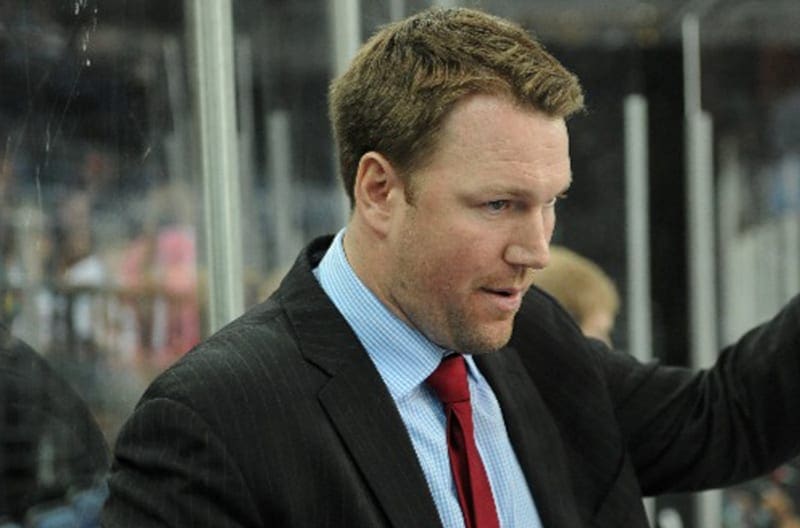
Christiansen was in charge for the 2014 campaign after taking over from Tony Hand (PHOTO: Belfast Giants)
“But it’s more advanced now than it was, with more training camps and warm up games. We would maybe have three or four practice sessions if that then away we went, usually a day or so before we travelled. Now the players are being given every opportunity to win, which is how it should be. That’s definitely not a criticism.
“Pulling your methods and getting what you want to do across is what we do and doing that in a limited timescale was fine. You do your run through, you get your balance right, implement your systems, not throw it down their necks and away you go.
Christiansen added: “The key is you have to be concise and focus on three or four areas you’re going to be good at and that’s something I would do if I did the job again.
“You’re going to make adjustments throughout the tournament, but you perhaps can’t make every adjustment because the styles are different from every team you play.
“Having such varied opponents makes that difficult so you have to be prepared as best you can, as you look to take advantage of the short time you have.”
So, there are long days, you’re going to upset people along the way, hours and hours of video, preparation and drills, not to mention the weight of a hopeful and perhaps expectant nation on your shoulders.
WATCH NOW: Doug Christiansen’s GB side win 3-2 over Poland in 2014, his last win as head coach of the national team
But both men loved their time in charge of the national team as they revealed what they regarded as the best part of the job.
Doug said: “It really is a grind and there’s not a lot of sleep and in terms of preparation, you want to make sure you’re as detailed as possible without overloading your players, especially in a tournament like that when one goal can be definitive in how you do.
“But the best part of the job for me was standing at the end of the game, with the national anthem playing is something special and different and when you see a staff who work hard and care as they do, that is a special moment.
“I have pictures of my phone and every now and then I’ll look at them and I smile at moments like that. Everyone worked hard to represent the country and I was very proud of being part of it.”
Thommo added: “For me, the best part was seeing the camaraderie among the guys. The British players in the Elite League are the minoriyy and there’s a real sense of pride and Britishness among them.
“The more experienced guys in Pete’s group are the players we brought in and now they’re showing the younger guys what it’s all about. They’ve had two phenomenal years and i hope for a third. Playing Canada and USA is something to learn from and I hope they enjoy the experience.
“They certainly deserve to be there.”

